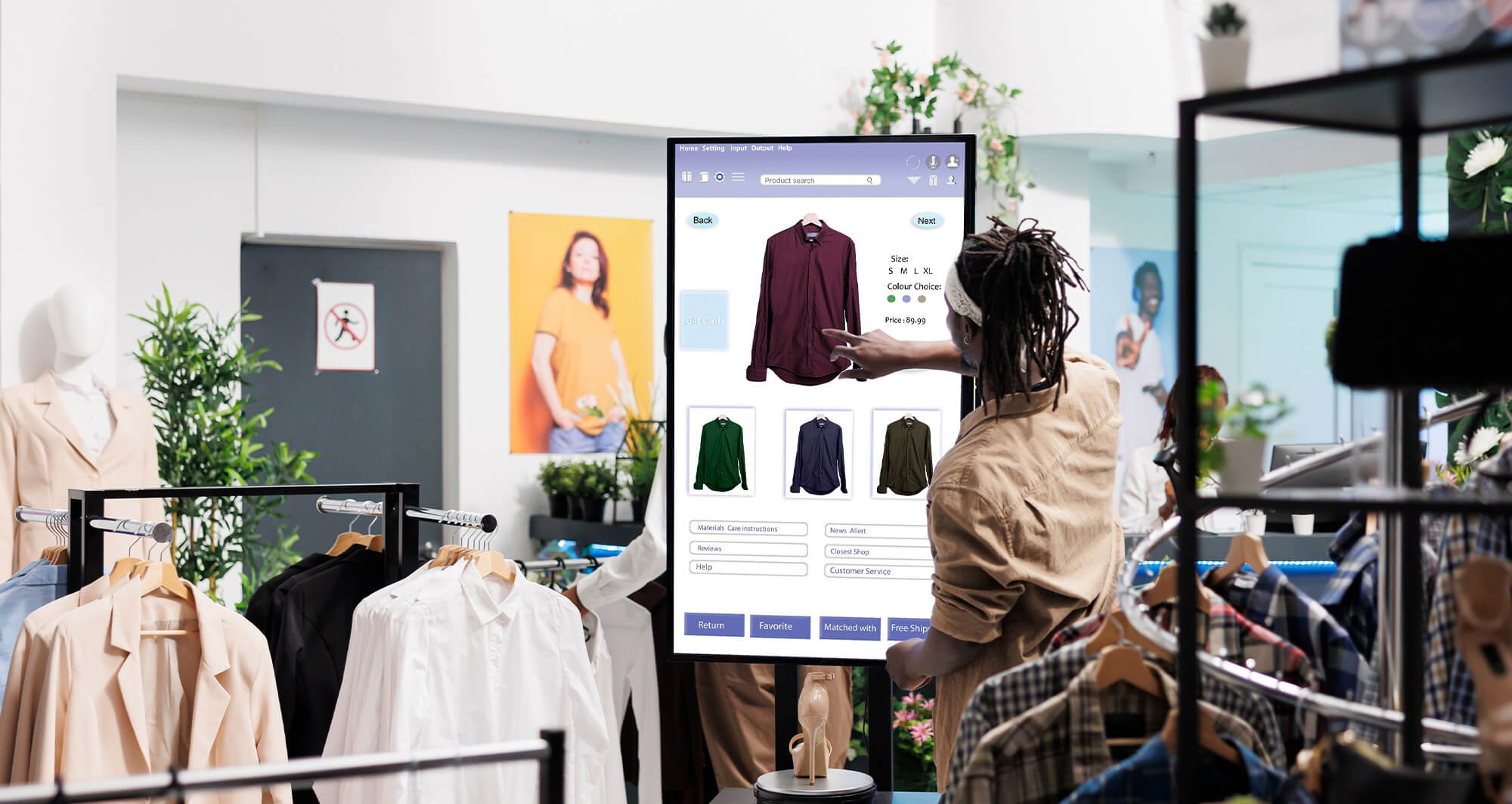Shoppers increasingly care about sustainability, shunning fast fashion and highly packaged products in favour of lasting investments and low-waste alternatives.
Research shows that 88% of consumers are more loyal to companies that support social or environmental initiatives, applying pressure to retailers to make a shift towards more sustainable practices.
However, it also makes business sense. According to research, products making environmental, social and governance (ESG) related claims saw a higher cumulative growth rate over the past five years, while sustainable practices can also lead to cost savings and waste reduction.
Thanks to the vast potential capabilities of artificial intelligence (AI), new opportunities are emerging to help reduce waste, optimise resources and implement initiatives that benefit both the environment and the bottom line.
Here, we’ll dive into some key examples of AI in retail that offer a strong business case for investing in this technology.
Supply chain forecasting
AI may not be able to tell us the future – but when applied effectively, it can make highly accurate predictions based on large, continuously updated datasets.
Many retailers begin with AI tools such as predictive analytics, which assess historical datasets to provide basic forecasts and inventory insights. However, several have already taken this a step further, employing machine learning (ML) algorithms to improve prediction accuracy based on additional data such as economic indicators, customer demographics and other factors.
Today, advanced AI tools allow even more complex data to be considered. Using deep learning (DL) algorithms, artificial neural networks are employed to process information. This networking process allows for more complex data to be used – such as social media activity, customer reviews and in-store sensor data – and can help lead to more refined, improved decision-making. Often, DL accuracy outperforms traditional ML algorithms.
Not only do these tools positively impact sustainability initiatives – reducing overstocking and excess waste – but they also benefit the business, optimising stock levels and reducing overproduction while ensuring shoppers’ favourite products are always well-stocked.
Once demand is identified, AI can support the optimisation of each step in the supply chain. Potential use cases include:
- Sustainable selection: AI can analyse suppliers’ sustainability practices to allow retailers to make informed partner choices.
- Predictive disruption: Much like demand forecasting, AI tools can predict potential supply chain challenges using data around weather, political instability and more.
- Efficient transportation: By mapping more energy-efficient routes and delivery schedules based on traffic and weather conditions, AI can help retailers cut fuel costs and reduce carbon emissions.
Energy management
A sustainable approach to energy management is an easy decision for retailers. Energy costs are rising, and the sector spends around £3.3 billion on energy each year. By optimising energy use, retailers can cut costs and lower carbon emissions.
Simple changes such as switching to energy-efficient lighting paved the way for this approach. Today, emerging technologies such as smart grids, AI tools, sensors and internet of things (IoT) devices allow for a fine-tuned process resulting in dynamic, real-time adjustments.
Imagine a supermarket embracing this technology. Smart sensors and IoT devices in the store monitor energy consumption, and key factors such as footfall, temperature and weather conditions. After analysing this data, AI tools can help adjust lighting, heating and cooling systems in real time to provide the optimum energy use. Should the store have solar panels and battery storage, these tools can also be integrated to manage energy storage efficiently.
Similarly, AI can monitor the store’s refrigeration units, maintaining optimum temperatures and, with predictive maintenance algorithms, can schedule repairs when needed to reduce energy waste.
Moreover, AI can create digital twins of stores and warehouses, test and model scenarios to identify the most energy-efficient strategies, and all without disrupting real-world operations in store.
Accelerate implementation
Identifying the key uses for AI in supporting sustainable practices is the first step. However, retailers must ensure they have a clear and comprehensive strategy in place for success.
To succeed, organisations need clean, accurate data, or they risk AI providing inaccurate results. Moreover, legacy systems may not be compatible with advanced AI tools, so enterprise transformation can be an essential step in ensuring the effective implementation of AI.
Beyond the technological considerations, organisations must ensure that employees are educated on the responsible use of AI. Teams should be trained on the importance of maintaining a ‘human in the loop’ approach and encouraged to adopt strategies where AI works with supporting people to be more productive.
These people-centric strategies remain particularly important in retail, where the human touch is a key part of the customer experience.
Beyond supporting sustainable practices, AI is accelerating change across the retail landscape. To learn more about AI solutions to common retail challenges, dive into our whitepaper and learn how to seize the AI opportunity in retail.



